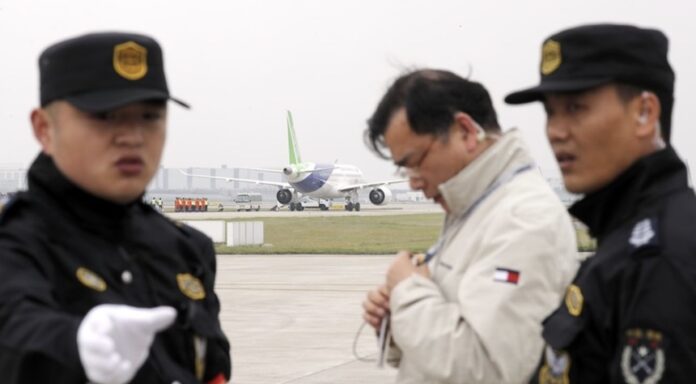The multinational corporate state, which has hijacked U.S. politics, appears to have shifted rhetorically and designated China as America’s top geopolitical foe, replacing predecessors such as transnational Islamic terror, Russia, etc.
What do we think of CEOs who have sold America’s manufacturing base to China to get cheap labor now that China is the top geopolitical enemy of the United States?
What about the governments who, in the 1970s, opened up so-called free trade (a euphemism for multinational corporate rule) to China that led to the infamous giant sucking noise that Ross Perot warned against? Perot’s concern was about jobs being sent south to Mexico. But the principle is the same:
China did not appear out of the blue on the global stage. The West actively helped China rise to prominence, but the reasons aren’t entirely clear.
According to the Bill of Rights Institute, Richard Nixon’s 1972 visit to the Middle Kingdom laid the foundation for our future “Chinese Century”:
Nixon shocked the world in June 1971 when he announced that he was going to China to meet Mao. The meeting was also criticized by conservative anticommunists who saw it as a betrayal to America’s Taiwanese allies, especially William F. Buckley Jr. magazine National Review. Nixon met Mao in Beijing for several hours on February 21, 1972. They discussed the path to normalized relations. He then toured China and met prominent Chinese leaders. Shanghai’s final talks produced an agreement that would facilitate the normalization of diplomatic relations, also known as the Shanghai Communique.”
The Economic Policy Institute, a group sponsored by the United States in 2001, helped China integrate itself into global economic liberalization and facilitate its rise, through the World Trade Organization.
The massive growth in trade between China & the United States since China joined the World Trade Organization (WTO) in 2001 has had a negative impact on U.S. workers & the domestic economy. A growing U.S. trade deficit with China is causing the United States to pile up foreign debt and lose export capacity. It also causes the United States to lose jobs, particularly in the vital, but under-siege, manufacturing sector. Between 2001 and 2013, the U.S. goods trade deficit with China grew, which led to a loss of 3.2 million jobs in the United States. 2.4 million (3/4) were in manufacturing.
China used its new manufacturing base as a means to increase its military strength relative to American power. This was presumably done in preparation for a showdown with America, the world’s hegemon.
Center for Strategic & International Studies
According to U.S. estimates, the U.S. lacks the necessary surge capacity to fight a major conflict.
In order to deter a possible conflict with China, it is important that the United States act quickly in order to solve key industrial challenges.
Politicians made poor policy decisions by bringing China into the liberal fold and then exporting America’s industrial base. This is assuming that the goal of the politicians was to keep the geopolitical threat contained and maintain the U.S.’s economic strength.
The executives of the corporations who off-shored America’s manufacturing and technology to Chinese state-funded rivals may have done so for good business reasons. It was certainly not patriotic.




